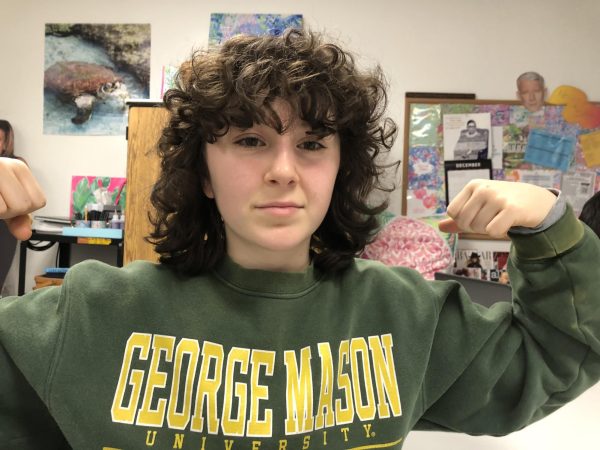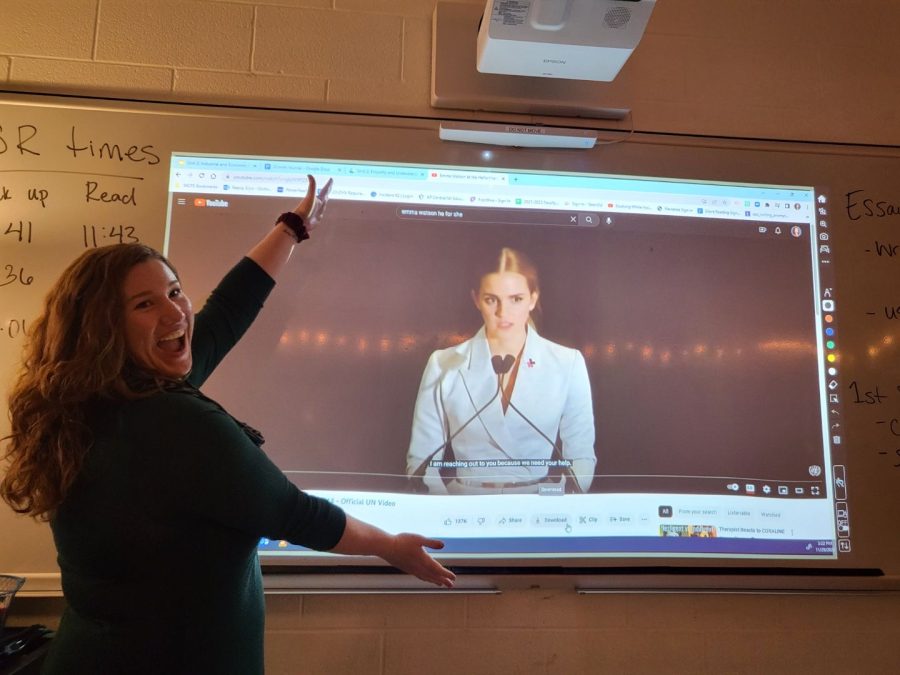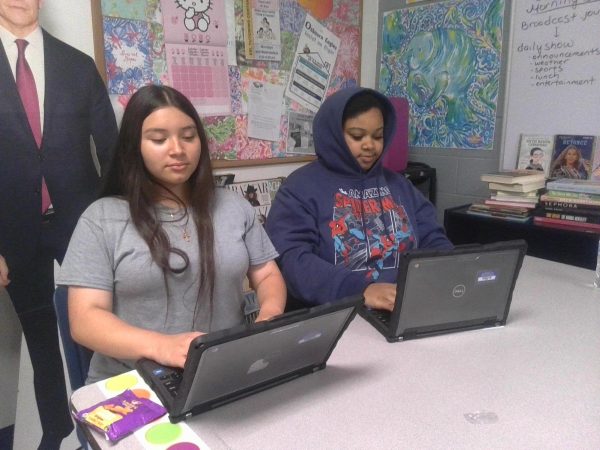Reece Tackles Gender Equality Issue In a Powerful, Relevant Lesson
Ms. Reece, an English teacher, sparked interest and shifted the perspectives of many students in her classes when she decided to present them with a feminism-based assignment in her class, in late October. It consisted of watching a video, as a group, about a speech that actress Emma Watson gave at the HeforShe campaign. The HeforShe campaign was created by United Nations Women and was constructed for global gender equality and empowerment of women.
“It seemed like a subject, especially considering how Emma Watson broadens her audience, that can invite all students to participate in the conversation and think about how their gender may or may not have an impact on their treatment,” explained Ms. Reece.
“I also wanted everyone to have a subject to talk about that they could see themselves in and have meaningful conversations about. High school requires greater maturity, and part of encouraging that maturity is giving you guys the tools and resources to have more mature conversations about a subject that may inspire different viewpoints and contrasting ideas,” she added.
In the speech, Watson talked about her own experience in dealing with sexist comments and being sexualized by the media from a young age, since rising to fame. She also mentioned how the topic of gender inequality can have an effect on men, and boys in our society in some ways as well, helping add the inclusivity and motivation for men to listen and partake.
“Some of my boys also liked the lesson because they have never heard feminism discussed in a way that doesn’t attack them, so they were more willing to listen to Emma Watson than any other advocate of gender equality,” said Ms. Reece.
After being targeted many times by the media in her childhood, Watson used her own encounters with sexual harassment as fuel to her fight for change. Her influence on the rising generation helps set her as a great role model for them. Many of Ms. Reece’s students agree when reflecting on this lesson on the importance of Emma Watson using her exposure to gender inequality to speak out about it.
“Her childhood was rough, especially when she turned 18 years old and was immediately sexually harassed by the press. So, her going to the UN to talk about how bad gender inequality is, and to urge people to stand up against it was great, considering the impact she had on the younger generation at the time,” said 9th-grade student, Erick Rivera-Lovos.
“I think it’s important that Emma Watson had this experience, and used it despite its impact that it left on her and used the opportunity to share the message. A lot of young boys and girls look up to her, and it is important to see the type of person she actually is, and how she’s affected the entire world and the UN campaign,” shared one of her students, Nicole Brotherton.
The many students who enjoyed the lesson valued the opportunity to discuss feminism and gender equality in the context of an English lesson.
“I think it was very important for Ms.Reece to teach people the importance of feminism, as there are not a lot of teachers or schools that really focus on it when it is such a big social issue in today’s world,” said freshman Alice Hertz.
Bringing up the topic of gender inequality in the world is very important, but we should also recognize the many changes made when it comes to sexism.
“I think our culture has started to shift. More girls in my generation were raised with the idea that girls can do anything boys can do than in my parents’ generation, and now we’re passing that on to you. My mother graduated from the Naval Academy and was in the second class that allowed women to join the Marines as officers, so I grew up hearing that I could be anything regardless of the fact that I was a girl. I felt that I was actively encouraged to do so, and that makes a big difference,” explained Ms. Reece.
Though gender inequality in the classroom still exists in today’s world, many schools (including Osbourn) have attempted to combat it in any way possible. For Osbourn, this usually comes in the form of professional development sessions that teachers are required to attend during the school year.
“In those sessions, we frequently discuss data regarding things like the frequency with which boys answer questions as opposed to girls, or the difference between boys and girls being recommended for higher level classes, particularly STEM classes. These are really helpful conversations because they force us to self-reflect: Do I call on more boys than girls? Am I more likely to think that a girl is ready for an advanced-level class than a boy is? Chances to think about how we teach and talk to others allow us to look for times when we might be in the wrong without noticing, and then correct it,” explained Reece.
To sum it all up, Ms. Reece encourages students to advocate and step up against gender inequality, anywhere.
“Sweeping change is not made by one person, but little changes lead to big ones. It’s another instance of see something, say something. If your friend keeps pursuing a girl who said she isn’t interested, tell him he’s wrong and he needs to stop being creepy. If your friend keeps messaging a guy who has a girlfriend, tell her she’s wrong, too, and that she is not owed his attention. If a guy talks over you, don’t let him. Be louder. Take up space. If someone shuts you down because you’re too young, too girly, or too anything, refuse to be shut down. Finish your sentence. Repeat it. LOUDER,” Ms. Reece exclaimed.

My name is Amelia, this is my second year in Journalism. Journalism gives me the freedom to write about what I am passionate about, and that is what I...

Hi, I'm Madina Habib an OHS freshman (9th grade). I hope that in the future I hope to write articles on OHS students and their interests, and important...











Rome John Henriques • Dec 13, 2022 at 1:27 pm
Stunning. I have no words on how powerful this article is. I hope you continute to shead light on these wholesome events!